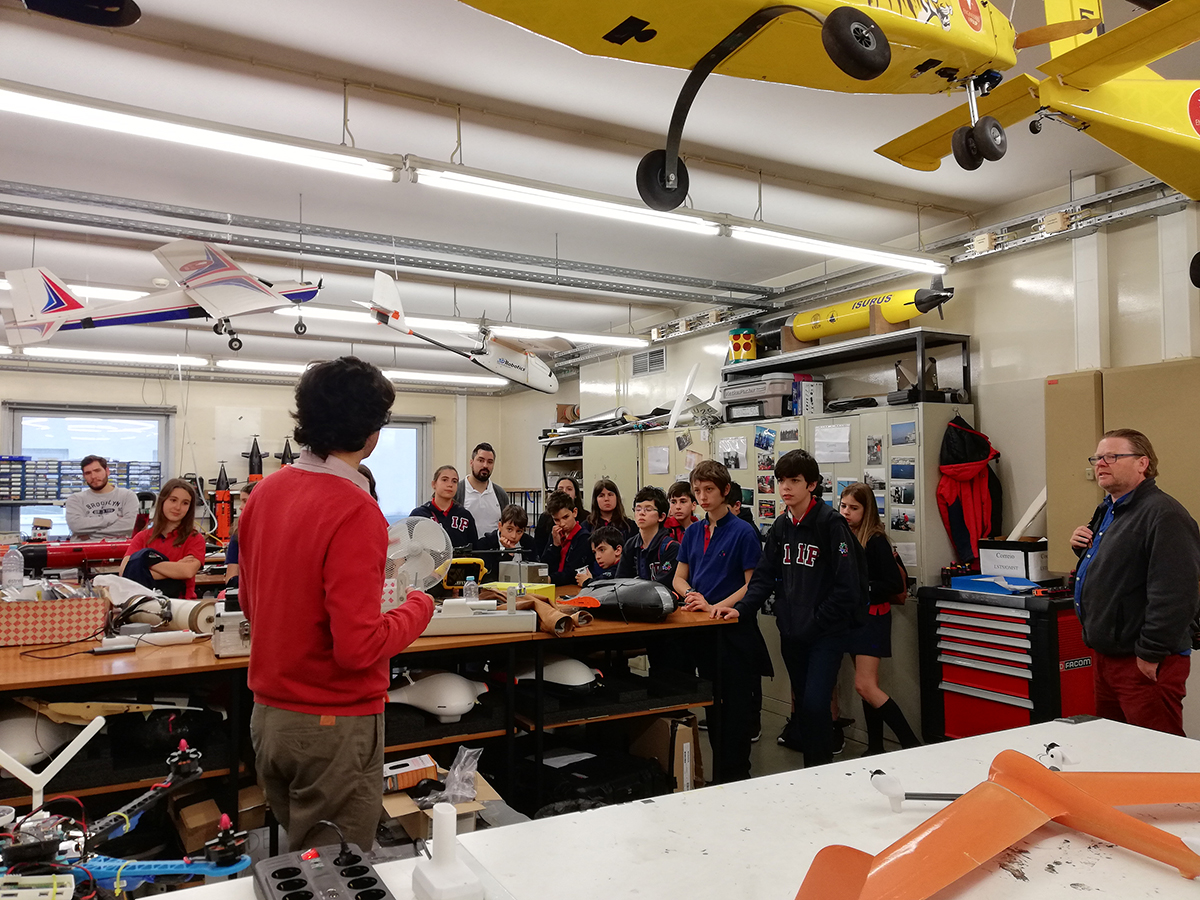Visita CLIP - The Oporto International School ao LSTS
No passado dia 14 de Maio um grupo de alunos do CLIP (The Oporto International School) visitou o LSTS (Laboratório de Sistemas e Tecnologia Subaquática) com o objetivo de aprender um pouco mais os detalhes sobre os veículos, sistemas e ferramentas que irão ser usadas no exercício científico, promovido pelo Schmidt Ocean Institute, a bordo do RV Falkor no Oceano Pacífico.
Durante a apresentação do laboratório e dos seus recursos os alunos foram introduzidos a uma série de detalhes sobre o mundo da robótica autónoma aquática, especialmente as mais valias da utilização de equipas coordenadas destes veículos.
Os alunos mostraram grande interesse e curiosidade relativamente às capacidades deste tipo de veículos bem como os dados que eles conseguem recolher, em prol da ciência. De igual modo foi-lhes possível entrar em contacto com o software que irá controlar os veículos e que permitirá analisar todos os dados recolhidos por eles, quer a bordo com RV Falkor, que na estação de controlo remoto no LSTS.
No final da visita foi colocado um desafio aos alunos com o objectivo de alimentar a sua curiosidade sobre o tema da robótica e aumentar o seu conhecimento, em preparação para a sua participação remota no exercício do Pacífico.
On 14th May, a group of CLIP students (Oporto International School) visited the LSTS (Underwater Systems and Technology Laboratory) to learn more about the vehicles, systems and tools that will be used in the scientific exercise, promoted by the Schmidt Ocean Institute, aboard the RV Falkor in the Pacific Ocean.
During the presentation of the laboratory and its resources, students were introduced to a series of details about the world of autonomous robotics, especially the advantages of using coordinated teams of these vehicles.
The students showed great interest and curiosity regarding the capacities of this type of vehicles as well as the data that they can collect, in favor of science. It was also possible for them to get in touch with the software that will control the vehicles and that will allow to analyze all the data collected by them, either on board with RV Falkor, or in the remote control station in the LSTS.
At the end of the visit, students received a challenge with the aim of feeding their curiosity about the topic of robotics and increase their knowledge in preparation for their remote participation in the exercise of the Pacific.




